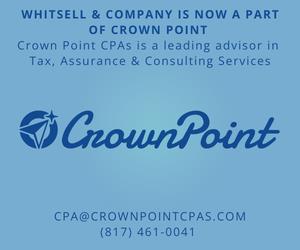Advertising your company is an essential part of your business practices – vibrant ads with catchy slogans can draw customers in and increase sales. However, advertising is also an area that is heavily regulated both at the federal and state level. Failing to adhere to advertising laws, regulations and other pieces of regulatory guidance can result in costly penalties and damages, wiping out those increased profits you worked so hard for. But never fear! We’re going to lay out some rules of the road for you to consider when developing compliant marketing pieces.
Before preparing an advertisement, you should consider five questions:
- What consumer protection laws apply?
- What claims does the ad convey to consumers?
- Do you have proof to support those claims?
- Have you clearly disclosed material information?
- Do your claims raise any compliance red flags?
First, it is important to identify which laws apply to your advertisement. Possible laws include the Federal Trade Commission (FTC) Act, state rental-purchase laws, and various other state consumer protection laws, including state statutes addressing unfair or deceptive acts or practices. Each law imposes unique requirements on advertising content.
For example:
- The FTC Act, which prohibits unfair and deceptive acts and practices, has been used by the FTC as justification for numerous actions regarding advertising claims. The FTC’s website has lots of resources you can consult when crafting advertisements, including “Advertising FAQ’s: A Guide for Small Business,” the “CAN-SPAM Act: A Compliance Guide for Business,” and the “Consumer Review Fairness Act: What Businesses Need to Know.”
- Almost every state rental-purchase law includes specific disclosure requirements that must be included in an advertisement. Sometimes, these specific disclosures only need to be made if the advertisement includes some sort of “triggering claim.” For example, in Delaware, Minnesota, Missouri, Nebraska and Tennessee if an advertisement includes the dollar amount of a payment, the advertisement must also state that the transaction is a rental-purchase transaction, the total of payments necessary to acquire ownership, and the fact that the consumer doesn’t acquire ownership rights unless the consumer pays the total amount necessary to acquire ownership. You should review the rental-purchase statute where you advertise for requirements applicable to advertising. (Note: state RTO statutes are available to APRO members in the Legal Resource Hub.)
- In addition to the state rental-purchase statues, there are other state laws that impose requirements applicable to advertising. First and foremost are the state unfair and deceptive acts and practices laws. Similar to the FTC Act, many states prohibit engaging in unfair and deceptive acts and practices. Those laws may contain specific requirements or limitations regarding advertising. There may also be advertising requirements that apply to specific types of merchandise.
Second, when creating an advertisement, consider what claims an ordinary consumer could take away from the advertisement. When making this assessment, it is important to look at the advertisement as a whole. While individual statements may not be misleading, those statements, when taken together with other parts of the advertisement, could still mislead consumers. And don’t just consider the words on the page – visual images can deceive consumers, too.
A common example we see when reviewing rental-purchase advertising is the phrase “no credit needed.” Some organizations may use this phrasing intending to mean that the rental-purchase transaction is not credit. However, some regulators think that ordinary consumers interpret this phrase to mean that they don’t have to have a good consumer report from a consumer reporting agency. If you pull a consumer report before entering a rental-purchase transaction, using the phrase “no credit needed” in your advertising, without clearly clarifying the meaning, a regulator may say that this is deceptive.
Third, confirm that you have adequate support for any claims that you make in an advertisement. You must have competent and reliable evidence to back up any claims you make. For example, you cannot say that “9 out of 10 consumers are approved” unless you have objective proof that the statement is true. Use of phrases like “leases up to $____” also require adequate justification and cannot be used unless all or almost all consumers were likely to achieve a lease of such value.
Fourth, you must disclose all material limitations on the offer clearly and conspicuously. Disclosures should be prominent, clearly worded, placed close to the qualifying claim, and provided in time for the consumer to make a meaningful choice. Resist the temptation to include material limitations in the fine print, as deceptive advertising claims cannot be cured by fine-print disclosures.
You should also be careful when using a hyperlink to provide modifying disclosures. In fact, the FTC has published a helpful guide explaining the ways to make adequate advertising disclosures online – the “.com Disclosures: How to Make Effective Disclosures in Digital Advertising.” If your company engages in online advertising, including displaying products on its website, this guide is a must-read.
Fifth, take care to consider FTC guidance regarding key issues such as price comparisons, discounts, bait advertising, “Made in the USA” claims, and use of the word “free.” For example, the FTC has said that it is unfair or deceptive to switch a customer to a different product by claiming that the advertised product is not available or by failing to have the advertised product available in reasonable quantities. So, it would be unfair or deceptive to advertise a 50-inch TV for a cash price of $175 if you only have one or two of the specifically advertised TVs but a large quantity of $250 50-inch TVs. The FTC and some state agencies have published extensive guidance addressing these concepts. You should carefully review that guidance and follow it when crafting your advertisements.
Sorting through the morass of state and federal laws, rules, and regulations regarding advertising can seem overwhelming. A good way to streamline the process when creating marketing pieces is to develop a marketing checklist. A marketing checklist typically lists the requirements that must be satisfied before an advertisement can be used. You can also have your outside counsel review draft advertisements before disseminating them to the public.
Justin B. Hosie and K. Dailey Wilson are Partners with Hudson Cook, LLP.









